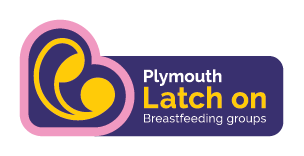Eight Plymouth mums have today celebrated the completion of a ten week breastfeeding peer support programme. The training programme, which is accredited through APT awards (OCNSWR), is delivered by health professionals from Plymouth Community Healthcare in partnership with local children’s centres and volunteers. Successful candidates will be rewarded with 3 credits at level 2, the equivalent to GCSE standard. The course equips the volunteers with the knowledge and practical skills required to support mothers who choose to breastfeed, and give their babies the healthiest start to life.
Becoming a parent can be full of new and exciting challenges; as a baby gets to know its parents and the parents learn to understand their infant’s needs. Breastfeeding is recognised by all major health organisations as being the healthiest way to feed a new-born baby and to meet all its nutritional requirements for the first six months of life. The health benefits of breastfeeding are largely attributed to the ‘living’ components within breastmilk, which cannot be duplicated or added to formula substitutes. These include infection fighting antibodies, white blood cells, red blood cells, and anti-viral factors. Breastmilk also contains living growth factors, hormones and enzymes, which help a baby to easily digest all the goodness from every feed.
National statistics show that many mothers will start breastfeeding, but may stop in the first few weeks if they experience difficulties and they do not receive timely and skilled support. This can leave new mothers feeling less confident and experiencing feelings of disappointment or regret. Jan Potter, PCH Breastfeeding Co-ordinator acknowledges the need for early intervention when it is needed. “All mothers want their babies to have the best possible start to life. Choosing to breastfeed is an important decision as it enables a mother to be close to her baby, sharing eye contact, stimulating her babies brain development and providing the perfect balance of nutrients, which is unique to every baby. Breastfed babies also have long lasting protection against numerous infections such as the ear, chest, urinary tract, as well as asthma, eczema, childhood cancers, diabetes and cot death. Plymouth Community Healthcare is committed to supporting mothers to breastfeed for as long as they choose to do so. Our peer support volunteers provide a valuable source of mother to mother support, which compliments the services already provided by local health professionals.”
Mandy Chapman, PCH Breastfeeding Peer Support Mentor, suggests “like all new skills, breastfeeding needs to be learnt and practiced before a new mum feels really confident about her body’s ability to produce milk for her baby. Peer supporters are specially trained to offer skilled mother to mother support, guidance, encouragement and accurate information. The eight newly qualified peer supporters are a welcome addition to the Latch-on network. They have shown a great deal of passion, enthusiasm and commitment for their new role. They will be joining our current volunteers who support mothers and breastfeeding families in both Derriford Hospital and Latch-on groups in the community. We look forward to them starting their new roles and we are sure they will be a great asset to the families they will be supporting.”
The Latch-on groups offer a breastfeeding friendly environment, positive atmosphere and a warm welcome to all breastfed babies and their parents. Their is also an opportunity to talk to a health professional and to find out about the family centred activities being delivered through the local children’s centre.
The newly recruited volunteers, who have all breastfed their own babies, will continue to receive training updates and networking opportunities organised by Mandy Chapman, who has first-hand experience, having been a volunteer peer supporter for eight years before joining the PCH team.
Details about becoming a peer supporter and what the role entails, can be found on the Plymouth Lacth-on website at www.plymouth-latchon.org.uk, or by telephoning Mandy Chapman on (01752) 431637.
